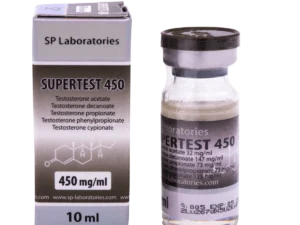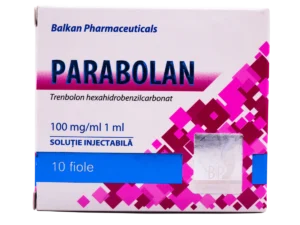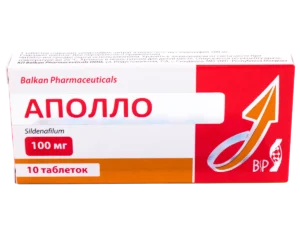Exploring the Benefits of Cold Water Therapy for Athletes
Introduction:
Cold water therapy, also known as cold water immersion or cryotherapy, has gained significant attention in the world of sports and athletic performance. Athletes are constantly seeking new methods to enhance their recovery, reduce inflammation, and improve overall performance. Cold water therapy has emerged as a promising technique that offers numerous benefits to athletes of all levels.
Cold water therapy involves immersing the body in cold water or applying cold compresses to specific areas. The water temperature typically ranges from 10 to 15 degrees Celsius (50 to 59 degrees Fahrenheit). This therapeutic practice has been used for centuries, with ancient civilizations recognizing the healing properties of cold water.
One of the primary benefits of cold water therapy is its ability to reduce inflammation and swelling. Intense physical activity often leads to micro-tears in muscle fibers, resulting in inflammation and soreness. Cold water immersion helps to constrict blood vessels and decrease blood flow to the affected areas, reducing inflammation and promoting faster recovery.
Moreover, cold water therapy has been found to alleviate muscle soreness and minimize the risk of delayed onset muscle soreness (DOMS). DOMS is a common condition experienced by athletes following intense exercise, characterized by muscle pain and stiffness. Cold water immersion helps to numb the nerve endings, providing temporary relief from pain and reducing muscle soreness.
In addition to its anti-inflammatory properties, cold water therapy also enhances circulation and accelerates the removal of waste products from the muscles. The cold water causes blood vessels to constrict, which in turn forces the blood to circulate more efficiently. This increased circulation helps to flush out metabolic waste products, such as lactic acid, thereby reducing muscle fatigue and improving recovery time.
Furthermore, cold water therapy has a positive impact on the central nervous system. The cold water stimulates the release of endorphins, which are natural pain-relieving and mood-enhancing hormones. This not only helps athletes manage pain but also promotes a sense of well-being and relaxation.
In conclusion, cold water therapy offers a multitude of benefits for athletes. From reducing inflammation and muscle soreness to improving circulation and enhancing recovery, this technique has proven to be a valuable tool in optimizing athletic performance. As we delve deeper into the main text, we will explore the scientific evidence behind cold water therapy and provide practical recommendations for incorporating it into an athlete’s routine.
Exploring the Benefits of Cold Water Therapy for Athletes
Enhanced Recovery and Reduced Inflammation
Cold water therapy has been widely recognized for its ability to enhance recovery and reduce inflammation in athletes. When the body is exposed to cold water, blood vessels constrict, leading to a decrease in blood flow to the affected areas. This constriction helps to reduce swelling and inflammation, allowing athletes to recover faster from intense workouts or injuries.
Numerous studies have shown the positive effects of cold water immersion on inflammation reduction. In a study published in the Journal of Science and Medicine in Sport, researchers found that cold water immersion significantly reduced markers of inflammation in athletes compared to passive recovery methods. This suggests that cold water therapy can be an effective strategy to combat exercise-induced inflammation.
Alleviation of Muscle Soreness
Muscle soreness is a common occurrence for athletes, especially after engaging in high-intensity workouts or competitions. Cold water therapy can provide relief from muscle soreness by numbing the nerve endings and reducing pain perception. This can significantly improve an athlete’s comfort levels and allow them to perform at their best.
Furthermore, cold water therapy has been found to minimize the risk of delayed onset muscle soreness (DOMS). DOMS typically occurs 24 to 72 hours after intense exercise and is characterized by muscle pain and stiffness. By incorporating cold water immersion into their recovery routine, athletes can potentially prevent or reduce the severity of DOMS, enabling them to train more consistently and effectively.
Improved Circulation and Waste Removal
Cold water therapy promotes improved circulation, which plays a crucial role in the recovery process. When the body is exposed to cold water, blood vessels constrict, forcing blood to circulate more efficiently. This increased circulation helps to deliver oxygen and nutrients to the muscles, aiding in their repair and recovery.
Moreover, the enhanced circulation facilitated by cold water therapy accelerates the removal of waste products from the muscles. Lactic acid, a metabolic waste product that accumulates during intense exercise, can contribute to muscle fatigue and soreness. By promoting efficient waste removal, cold water therapy helps to reduce muscle fatigue and improve recovery time, allowing athletes to bounce back quicker and perform at their peak.
Positive Impact on the Central Nervous System
In addition to its physical benefits, cold water therapy also has a positive impact on the central nervous system. The exposure to cold water stimulates the release of endorphins, which are natural pain-relieving and mood-enhancing hormones. This can help athletes manage pain and discomfort, while also promoting a sense of well-being and relaxation.
The release of endorphins during cold water therapy can also have a positive effect on an athlete’s mental state. Engaging in intense physical activity can often lead to feelings of stress and anxiety. Cold water therapy provides a refreshing and calming experience, helping athletes to unwind and reduce mental tension. This can contribute to improved focus, mental clarity, and overall performance.
Conclusions
Cold water therapy has emerged as a valuable technique for athletes seeking to optimize their performance and recovery. From reducing inflammation and muscle soreness to improving circulation and promoting a positive mental state, the benefits of cold water therapy are numerous. Incorporating regular cold water immersion or cold compresses into an athlete’s routine can aid in faster recovery, enhance overall well-being, and contribute to achieving peak performance. It is important for athletes to consult with a healthcare professional or sports therapist to determine the most appropriate cold water therapy protocols for their specific needs and goals.
Actionable Recommendations for Cold Water Therapy
1. Cold Water Immersion Post-Workout
After intense workouts or competitions, athletes can benefit from a cold water immersion routine. Fill a bathtub or a large container with cold water (around 10 to 15 degrees Celsius) and immerse the body for 10-15 minutes. This can help reduce inflammation, alleviate muscle soreness, and promote faster recovery.
2. Contrast Therapy
Consider incorporating contrast therapy, alternating between cold water immersion and hot water or heat therapy. This involves immersing the body in cold water for a few minutes, followed by a few minutes in a hot bath or using heat packs. The contrast between cold and hot temperatures can enhance circulation, reduce inflammation, and promote muscle relaxation.
3. Cold Compresses
For targeted relief, athletes can use cold compresses on specific areas of the body. Place ice packs or cold towels on sore muscles or joints for 15-20 minutes. This can help reduce swelling, numb nerve endings, and provide temporary pain relief.
4. Gradual Exposure to Cold Water
If you are new to cold water therapy, it is important to gradually expose your body to colder temperatures. Start with lukewarm water and gradually decrease the temperature over time. This allows your body to adapt to the cold and reduces the risk of shock or discomfort.
5. Seek Professional Guidance
It is crucial to consult with a healthcare professional or sports therapist before incorporating cold water therapy into your routine. They can provide personalized recommendations based on your specific needs, fitness level, and any underlying medical conditions.
6. Timing is Key
Consider the timing of your cold water therapy sessions. While post-workout immersion is beneficial, it may also be helpful to incorporate cold water therapy before exercise to reduce muscle soreness and enhance performance. Experiment with different timings to determine what works best for you.
7. Monitor Your Body’s Response
Pay attention to how your body responds to cold water therapy. Everyone’s tolerance and preferences may vary. If you experience any adverse reactions or discomfort, adjust the duration or temperature accordingly. Listen to your body and make modifications as needed.
8. Stay Hydrated
Cold water immersion can be invigorating and may cause increased sweating. It is important to stay hydrated before, during, and after your cold water therapy sessions. Proper hydration supports overall recovery and helps maintain optimal performance.
Remember, cold water therapy is just one component of a comprehensive recovery and performance enhancement plan. It should be used in conjunction with other strategies such as proper nutrition, adequate rest, and targeted exercises. By incorporating these actionable recommendations, athletes can harness the benefits of cold water therapy and optimize their athletic performance.






